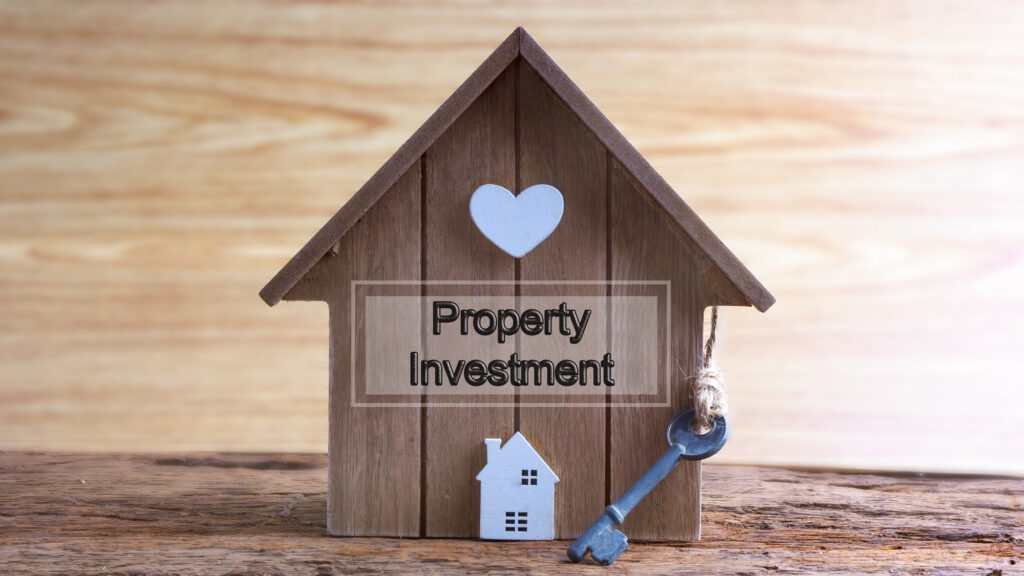If you know someone who’s invested in property, you’ve probably heard all their stories of how it’s given them financial and lifestyle freedom.
But investing in property also comes with a degree of risk, so it’s important you know what to expect if you’re a beginner or keen to invest in property for the first time.
The guide explains how to invest in property, the different investment opportunities that are out there and everything you’ll need to consider before you take the plunge…
Is it worth investing in property?
Property remains a solid and secure investment, despite the economic uncertainty brought on firstly by Brexit and then the Covid-19 pandemic.
Property prices in the UK have soared since 2020, with the stamp duty ‘holiday’ fuelling buyer demand, with nationwide growth of 8.8% reported in the Halifax’s June 2021 price index.
Rental demand, too, has increased, as tenants look for more space so they can work from home.
For new landlords, though, certain areas of the UK produce better rental yields than others.
Types of property investment
In the UK, there are three main types of property investment opportunity:
• Buy-to-let investments
• Property development
• New-build ‘flipping’
1. Buy-to-lets
You may have read stories saying the buy-to-let boom is over.
And while it’s true landlords are faced with more legislation and compliance than ever before, buy-to-lets remain a great investment.
Getting on the property ladder remains extremely difficult for younger people, so landlords who provide stand-out rental properties will see continued demand from tenants.
Rightmove’s Rental Price Tracker for Q2 2021 revealed average rents outside of London had hit a new record of £1,000 per calendar month, while rents were 6.2% higher than in the first quarter of 2021.
If you’re looking for a long-term investment, where you’ll generate an income as well as any capital growth, buy-to-lets could be the right option for you.
2. Property development
Property development can be a great short-term investment strategy.
By finding a property in need of renovation work, you may be able to add value before selling the completed home for a profit.
However, how much you make can be dictated by several factors, including:
• What you pay for the property in the first place
• How much you spend on renovation work
• How quickly you complete the work
• The market conditions and demand from buyers
The more time you spend renovating, the more likely you could be hindered by changes to the market.
Costs can also rise over a long period of time, all of which can eat into your profits.
Then there’s finding the right property in the first place.
Auctions can be a good place to buy property at value and often homes in need of work come up as ‘lots’.
Buying from auction can sometimes mean a lack of knowledge about a property, though, so always study the legal pack and try to visit the property before raising your hand with a bid.
Like buy-to-let, you’ll need to stay on the right side of your finances when developing property, too, and factor in any nasty surprises that could delay your renovation work or cost you more than you bargained for.
But it’s possible to make great profits in short spaces of time if you do property development well and buy low, renovate cost-effectively and sell on quickly.
3. New-build property ‘flipping’
‘Flipping’ is one of those property investment strategies that often sounds too good to be true.
In its purest sense, flipping sees you buy a new-build property off-plan during a development’s early stages.
Then, in a rising market, you sell the property on for an increased price once the build is complete.
In a market enjoying strong capital growth and high buyer demand, ‘flipping’ is a way to make money from property with minimal effort.
But it’s a risky strategy for several reasons:
• In a falling market, with low demand, you could be stuck with a property you can’t sell
• The build could be delayed, and the market could change
• New-build properties can drop in price if they’re sold quickly by their first owner as, technically, they’re no longer ‘new’ despite not having been lived in
How can I invest in property without buying?
Real Estate Investment Trusts (REITs) enable you to invest in property without actually becoming the owner of the asset.
Instead, you invest in the trust that buys up properties and rents them out in the same you would if you were to become a landlord.
You’re then paid dividends based on how the trust’s properties are performing.
Because of the way returns are paid to investors, REITs come with certain tax considerations, so always speak to an independent tax advisor before investing.
How do I start investing in property?
If you’re keen to start investing in property, there are lots of stages you’ll need to go through and many, many considerations you’ll need to make along the way…
1. Decide which strategy you’re going to follow
How you invest in property will depend on the amount of capital you have to invest, whether your strategy is long or short-term and how much effort you want to put in.
If you’re keen to generate an income from property, have a moderate amount of capital to invest and have a long-term view of your investment, a buy-to-let property may be the best option.
But if you have a good amount of capital to invest, you might want to consider property development.
Many mortgage lenders won’t allow you to borrow money to buy a property that’s not ‘habitable’, plus you’ll need cash to pay for renovations if you purchase a property to develop.
Finally, if you’re keen to remain more ‘passive’ with your investment, you could consider a REIT or ‘flipping’.
All property investment strategies come with risks, so consider your options carefully and always seek expert advice.
2. Do your research
Much of your success as a property investor will be determined by investing in the right property at the right price.
You’ll need to consider your target market for renters or buyers and then look at suitable locations.
For example, if you’re looking to target young professional renters with an apartment, is it close enough to a train station or major road for their commute?
If you’re looking to develop and sell to a family, what are the schools like nearby?
3. Research mortgages
Getting a good mortgage deal can have a big impact on your profits.
If you’re going down the buy-to-let route, your mortgage payments will eat into your rental profits.
And if you’re looking to buy a run-down property to develop, you may not be able to get a mortgage at all and may have to consider alternative finance or spending more of your own capital.
Always speak to an independent broker or financial advisor to discuss your funding options before investing in any property.
4. Make the right offer
Whether you’re purchasing a buy-to-let, or a property to develop, or an off-plan new-build to ‘flip’, what you pay will be key to your success.
But for investors, it’s even more important as it has a direct impact on their short and long-term profits.
5. Choose the right solicitor or conveyancer
This is where more research is needed.
As an investor, it can pay to seek out a solicitor with experience of completing investment purchases.
For example, if you’re looking to buy a House in Multiple Occupation (HMO), where you let the property on a room-by-room basis, having a conveyancer who specialises in shared living properties can help keep your purchase on track.
And remember: the faster you can complete your purchase, the greater the boost to your profits.
6. Have a survey
When buying a property to develop, it’s common to find nasty surprises that eat into your budget and reduce your profits.
If you’re looking to buy a property that needs work to bring it up to scratch, always have a full structural survey done so you know exactly what you’re buying.
A full survey will explore the property’s structure, flagging up any potentially costly issues with subsidence, roof problems or damp.
How much money do you need to invest in property?
How much capital you need to invest in property will depend on the strategy you’re adopting and where you’re looking to buy.
For buy-to-lets and development homes, you’ll pay more for a property in the South West, for example, than you will in the North West.
However, rental prices in the South West are also higher, so you’ll need to weigh up what you want to spend against the returns and yield you’re looking for.
Further reading…
• What should you buy – old build or new build?




